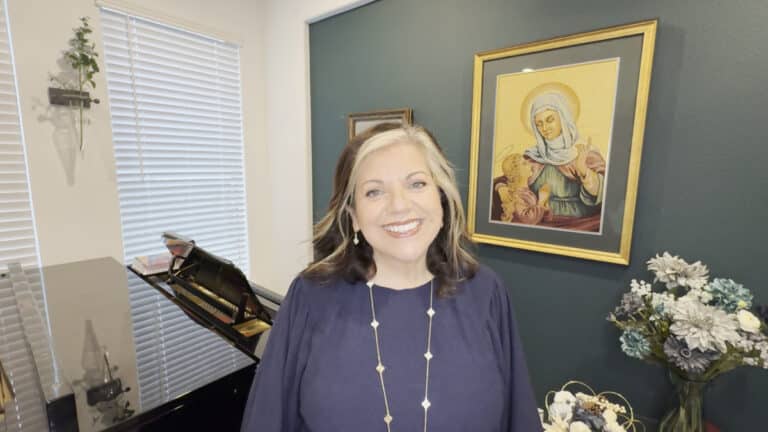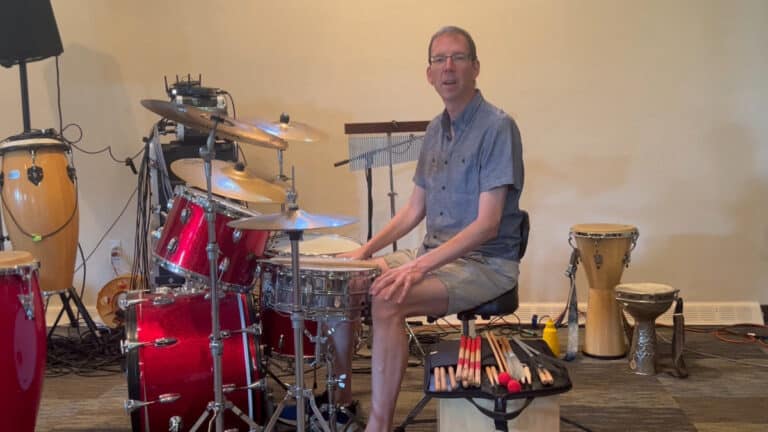In my weekday job, I have a role in crisis communication for a Fortune 500 company. Much of that work is about anticipating what could go wrong and being prepared if it does. We have plans for cyber attacks, the departure of a top executive, and gas leaks on campus, to name a few. We also have a process for taking action and then keeping the right people informed.
The same is true of my work in parish liturgy and music.
Thinking through scenarios that could disrupt the liturgy or distract the assembly (not to mention the musicians) is a great strategy for anyone responsible for music at Mass.
What happens when the accompanist, the director, or the presider wakes up sick on Sunday morning and there’s no time to get a sub? How about when a thunderstorm knocks out power to the church and the sound system?
Below are a few common crises that can affect music ministers and tips to help you be ready in case of a musical crisis.
Absent accompanist or instrumentalists
An absent accompanist is most cantors’ nightmare, but there are a few ways to address it in the moment.
If there are other able instrumentalists — especially a guitarist — let them carry the day. Run through the intros, particularly the psalm. If the guitarist can play individual notes, play the melody of the psalm response as the intro. For singers who don’t play guitar, it can be difficult to find the key of the psalm from the chords alone.
A cappella music is another option. Look at the scheduled music. If there are distinctively rhythmic pieces, such as in gospel style, you might consider switching to a 4/4 hymn. If none of the singers are confident proclaiming the psalm a cappella, the lector could read it.
Consider silence. Even if a song is scheduled during the Preparation of the Gifts, it is perfectly fine to allow this to be a time for silent reflection. The same is true for dismissal if needed, but make sure the presider knows so you don’t end up in a waiting game.
Cantor with a cold
In years past, you might occasionally see someone who was noticeably sick in the role of cantor. Post-COVID, that’s much less common. If a cantor shows up sick, the first option is to send him or her home if they truly appear ill. That said, the remnants of a cold or rigors of allergy season can play havoc with the voice, so there may be times you need to adapt to a cantor who isn’t singing at full strength.
If that’s the case, the cantor could opt to lead songs and acclamations sung by the assembly. For pieces requiring solo singing, could the accompanist take the verses of the psalm or gospel acclamation? If that’s not an option, a lector could be asked to proclaim the psalm and the Gospel acclamation verse could be eliminated. If eliminating the verse, sing the refrain once or twice and let the assembly carry the tune.
Missing words or incorrect words
If your church community uses a printed worship aid for the assembly, there are going to be times that there are missing words, especially with so many versions and arrangements of songs. The resolution of that is simple — you sing what the assembly has.
More troublesome is when they don’t have anything at all because the last line of a verse or the entire refrain was accidentally left off the worship aid. In that situation, take a moment before Mass to bring the mishap to their attention and provide direction. A simple announcement of “Verse 4 is missing from your aid, so the choir will take that verse” can help prevent any confusion. If a refrain is missing and it is easy or familiar, draw their attention to it and then run through the refrain before Mass begins.
Special requests
Occasionally, a presider will ask for a specific song you did not plan. Maybe it goes with a homily message or maybe it’s a favorite. If that kind of last-minute request happens regularly — more than once or twice in a year — that’s a problem for discussion. But if it is occasional and well-reasoned request, what do you do?
If you can accommodate, do so, because the Spirit works through all of us. If the song is not known by the ensemble, then consider how you might support it with one instrument and a single voice. If it means a change in the assembly’s worship aid, then keep it simple and announce the change prior to Mass: “Instead of the song in your worship aid, we’ll be playing a song for reflection.”
Final thoughts about musical crisis prevention
Whenever something unexpected is going on, be sure to make the presider aware of what it is and how you are handling it. If it affects the assembly in any way or is obvious to them — hey, where is the pianist? — let the assembly know as well. A brief straightforward announcement before the opening song can eliminate the distraction:
- “Our accompanist, Jill, is out sick this morning, so we’ll be singing a capella. Let us stand and join in our opening song.”
- “I’m getting over a cold, so our accompanist will be leading the psalm this morning from the music area.”
- “On our closing song, the refrain was accidentally left off the worship aid. It’s a song we sing quite often in Easter so it should be familiar, but let’s run through the refrain before we begin.”
Consider what unexpected happenings are more likely in your situation — whether it’s power outages or busted guitar strings — and be ready with those extra strings and plan B.
Last-minute changes are a reality of life. When we accept that reality and the occasional musical crisis with grace, things inevitably run more smoothly and — who knows? — maybe even as intended.
Written by Kathy Felong, a longtime director of music and liturgy in Erie, Pennsylvania. She is also vice president of communications, change, and culture at Erie Insurance, a regional insurance company in 12 states and D.C.
Copyright © 2023 Catholic Liturgical Ensemble Formation



